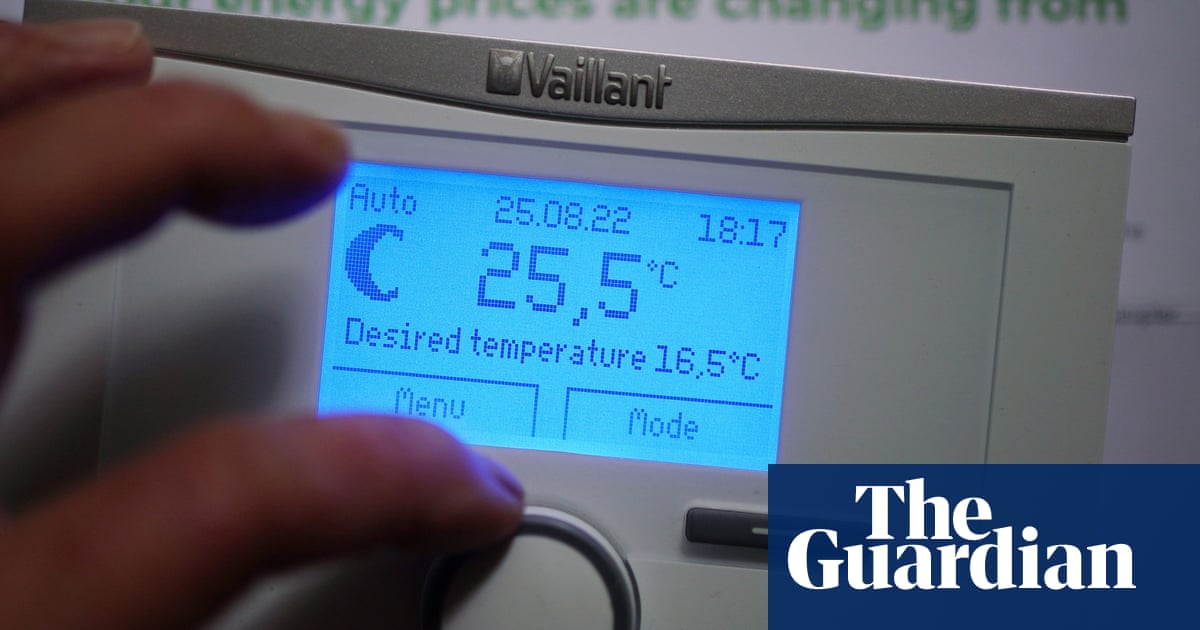
Britons have been warned to expect a “disappointing” rise in energy bills in January, adding pressure to household finances, despite earlier hopes that prices may ease early next year.
The price cap for Great Britain is forecast to rise to £1,736 a year for the average dual-fuel bill, according to Cornwall Insight, a well-respected energy consultancy. This is a rise of 1% from the current price cap, which increased last month to £1,717 a year for a typical consumer.
The energy regulator, Ofgem, which covers Great Britain, will announce the latest quarterly cap for January on Friday, as the UK enters the heating season.
In September, Cornwall had expected the cap to fall back slightly in the new year.
The cap has become a crucial indicator for British household finances since the energy crisis kicked off by Russia’s full-scale invasion of Ukraine in early 2022. Nearly three years later, energy prices remain significantly higher than before the invasion, adding to a long-running squeeze on the cost of living that has affected the most vulnerable households the most.
Before the war began, the cap was £1,216 but the energy market turmoil that followed the invasion threatened to push bills beyond £4,000. In October 2022, the government stepped in to create the separate energy price guarantee to cap bills at £2,500.
The price cap is set every quarter by Ofgem, and imposes a maximum on how much suppliers can charge their 28 million household customers for each unit of gas and electricity. Cornwall predicted the unit charges would be 24.83p and 6.33p a kilowatt hour for electricity and gas respectively.
The headline rate of £1,736 means that an average UK household would expect to pay that much each year, but in practice families will pay more or less depending on usage.
Cornwall predicted that prices will drop slightly in April 2025 and again in October 2025, but warned that “higher prices are likely the new normal”.
Craig Lowrey, a principal consultant at Cornwall Insight, said: “Our final price cap forecast for January indicates, as expected, bills will remain largely unchanged from October. Supply concerns have kept the market as volatile as earlier in the year, and additional charges have remained relatively stable, so prices have stayed flat.”
“While we may have seen this coming, the news that prices will not drop from the rises in the autumn will still be disappointing to many as we move into the colder months.”
The consultancy, which uses a similar calculation method to Ofgem to pre-empt the official announcement, said several factors in a “relatively volatile wholesale market” had sustained prices. These included “supply concerns tied to geopolitical tensions, maintenance on Norwegian gas infrastructure, weather disruptions” and others, it said.
Cornwall said that the best way to reduce dependence on volatile global energy markets was to build renewables infrastructure in the UK.
“Although the transition does require upfront investment, it promises lower bills down the line,” Lowrey said. “The government needs to keep momentum on the transition while acknowledging that immediate support is essential for those struggling now. Inaction is a choice to leave people in the cold.”
Richard Neudegg, the director of regulation at Uswitch, said: “Predictions that energy prices for those still on default tariffs will rise again in January are another kick in the teeth for households.
“The price cap is supposed to protect consumers, but millions face paying more during the coldest months of the year.”
Peter Smith, the director of policy and advocacy at National Energy Action, said: “The current cold spell is already having a devastating impact on the most vulnerable people. With unaffordable energy bills and far less support available nationally this winter, millions of people are already rationing their energy use to dangerous levels or getting deeper into debt trying to keep warm.”












